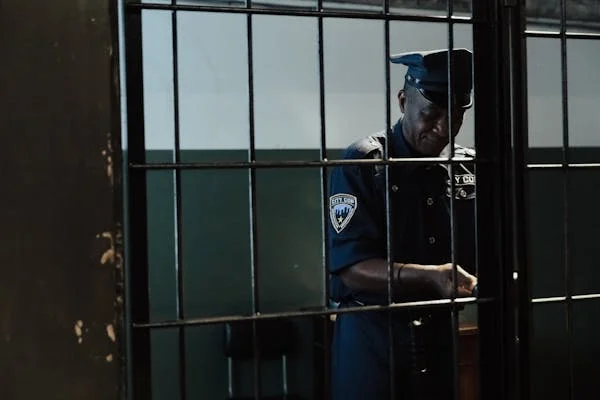Introduction
The metaphor of the “watchmenonthewal calvin” has long been a symbol of responsibility and vigilance. In the Bible, watchmen were stationed on the walls of cities to keep a lookout for danger. This idea transcends the literal interpretation and has been used as a metaphor for leadership, spiritual awareness, and community protection. One of the most influential figures who helped solidify the spiritual role of the watchman is John Calvin, a leader of the Protestant Reformation. Calvin’s interpretation of the watchman focuses on the vigilance and responsibility of those who guide communities spiritually. In this article, we will explore the concept of the watchman, its biblical roots, Calvin’s interpretation, and how it applies to today’s world.
The Biblical Foundation of Watchmenonthewal Calvin
The metaphor of the watchman is deeply rooted in the Bible. The Book of Ezekiel is where we first encounter the role of the spiritual watchman, with God commanding the prophet to be a watchman for the people of Israel.
1. Ezekiel’s Role as a Watchman
In Ezekiel 3:17, God speaks to the prophet, saying: “Son of man, I have made you a watchman for the people of Israel; so hear the word I speak and give them warning from me.” This passage emphasizes the responsibility of the watchman to not only observe but also to warn the people of spiritual dangers.
2. Watchman in Other Scriptures
The concept of watchmen appears in various other places in the Bible, such as Isaiah 62:6 and Habakkuk 2:1. These references further illustrate the role of a watchman in protecting the community and remaining ever-vigilant for threats.
3. Watchmen as Protectors and Teachers
In ancient times, the role of the watchman was primarily protective. However, in biblical terms, it expands to include the role of a teacher and a proclaimer of God’s will. The watchman does not simply alert the community to physical danger but warns against spiritual perils such as idolatry, false teachings, and moral decay.
John Calvin and the Role of the Watchman
Watchmenonthewal Calvin, a central figure in the Protestant Reformation, contributed significantly to the development of Christian theology. Calvin’s interpretation of the watchman role became influential in Reformed Protestant thought. According to Calvin, pastors and church leaders are the modern-day watchmen, tasked with guarding the flock against spiritual dangers.
1. Vigilance and Accountability
Calvin emphasized that watchmen must be vigilant and responsible for the spiritual welfare of their communities. This responsibility means not only observing the signs of the times but also taking action to protect and guide others toward righteousness.
2. Preaching the Word Boldly
For Calvin, the watchman’s most important duty was the proclamation of God’s word. He argued that pastors must preach boldly and without fear, especially when confronted with societal or cultural challenges that conflict with biblical teachings. This aligns with his idea that the church should be a prophetic voice, speaking truth to power and guiding the faithful through challenging times.
3. Moral Integrity and Leadership
Calvin saw moral integrity as crucial for the watchman. A leader who was to protect others spiritually had to demonstrate personal holiness and a commitment to godly living. Calvin’s emphasis on moral purity is a reflection of his broader theology, which placed a high value on personal sanctification.
Characteristics of a Faithful Watchman According to Calvin
To be a faithful watchman, Calvin outlined several key characteristics that spiritual leaders must embody. These traits go beyond mere observation and delve into the proactive role of guiding and warning the community.
1. Vigilance in Faith
A faithful watchman is always alert, aware of the spiritual dangers that could threaten the community. This includes false doctrines, moral corruption, and societal changes that could lead people astray. A watchman must remain rooted in Scripture, as the Bible provides the ultimate guide for identifying these dangers.
2. Boldness in Proclamation
Calvin stressed that watchmen should not be afraid to speak the truth, even when it is unpopular. The gospel message, though offensive to some, is the means by which people are saved. For Calvin, preachers must courageously proclaim the truth of God’s word, regardless of societal pressures or the prevailing culture.
3. Compassionate Leadership
Though a watchman must be bold, he must also be compassionate. Calvin believed that church leaders should not approach their role with a spirit of condemnation but with a heart for reconciliation and restoration. A faithful watchman seeks the welfare of the community and strives to guide others back to a right relationship with God.
4. Accountability
A watchman is accountable to God for the wellbeing of the people. This means that leaders must not only be faithful in their own lives but must also act as stewards of the gospel message, ensuring it is passed down faithfully to the next generation.
The Relevance of Calvin’s Watchman in Today’s World
The metaphor of the Watchmenonthewal Calvin, as interpreted by John Calvin, is just as relevant today as it was in the past. Although the world has changed dramatically since Calvin’s time, the spiritual challenges faced by the church remain constant. In today’s world, church leaders continue to face the responsibility of safeguarding their communities from false teachings, moral decay, and societal pressures.
1. Guarding Against False Teachings
In an age of information overload, the church must be especially vigilant in guarding against false teachings. Calvin’s call for bold preaching and teaching is crucial as churches face challenges from both within and outside their walls.
2. Facing Moral and Cultural Challenges
The moral landscape of society is ever-changing, with issues such as same-sex marriage, gender identity, and abortion often at odds with biblical teachings. Calvin’s emphasis on speaking the truth fearlessly is particularly pertinent in this context.
3. Building and Protecting Community
Beyond warning against external threats, Calvin’s view of the watchman includes the responsibility of building and protecting the Christian community. Church leaders must ensure that their congregations are spiritually healthy, united, and rooted in the gospel.
Practical Steps for Modern-Day Watchmen
In today’s context, the role of the watchman is not just reserved for pastors or elders but for all believers. Every Christian is called to be vigilant in their faith, to guard against temptation, and to protect the integrity of the church.
1. Personal Vigilance in Prayer and Bible Study
Every believer must engage in regular prayer and Bible study. Just as the watchman on the city walls needed to remain alert, Christians today must be spiritually aware and ready to resist temptation.
2. Supporting Spiritual Leadership
Congregants can support their pastors and leaders by praying for them and helping them uphold biblical truth in their communities.
3. Building Strong Relationships
In a world filled with distractions, one of the best ways to maintain vigilance is through strong relationships within the Christian community. By holding one another accountable and encouraging each other, believers can create a strong spiritual network.
The Legacy of Calvin’s Watchman: Lessons for the Church Today
Watchmenonthewal calvin legacy as a theological leader continues to shape the church’s understanding of leadership and spiritual responsibility. His interpretation of the watchman provides timeless lessons for leaders today, including the importance of vigilance, bold proclamation, moral integrity, and compassion.
1. The Importance of Doctrine
Watchmenonthewal Calvin insistence on solid doctrine as the foundation for spiritual leadership cannot be overstated. In an era of doctrinal confusion, the church must remain anchored in biblical truth.
2. The Role of the Church in Society
Watchmenonthewal Calvin believed the church should be an active voice in society, speaking out on issues of justice, morality, and truth. Today, this role is just as vital, especially in a time when the church is often marginalized or misunderstood.
Conclusion:
The legacy of the watchman, as articulated by John Calvin, is one of leadership, vigilance, and integrity. As we face the challenges of the modern world, the church continues to be called to be a watchman for society—a beacon of truth, a defender of the faith, and a protector of the community. By embodying the characteristics of a faithful watchman, we can ensure that the church remains strong and true to its calling, guarding the faith and guiding future generations toward a deeper relationship with God.
FAQs
What is the role of a spiritual watchman?
A spiritual watchman guards the faith, warns of false teachings, and protects the community from spiritual dangers, ensuring doctrinal purity.
How did John Calvin view the role of the watchman?
John Calvin saw the watchman’s role as protecting faith by boldly proclaiming biblical truth, defending against heresy, and caring for the congregation.
Why is vigilance important in the Christian faith?
Vigilance helps maintain spiritual integrity, defend against false teachings, and stay faithful to God’s Word, ensuring Christians stay alert in their faith.
How can modern Christians apply the watchman concept?
Modern Christians can apply this concept by engaging with Scripture, guarding their faith, and helping others stay grounded in biblical truth.
What does John Calvin’s leadership model teach us?
Calvin’s model emphasizes doctrinal teaching, bold truth proclamation, and compassionate care for the congregation, balancing vigilance with love.
How can believers defend doctrinal purity in today’s world?
Believers defend doctrinal purity by studying Scripture, discerning false teachings, and supporting each other in understanding biblical truth.





